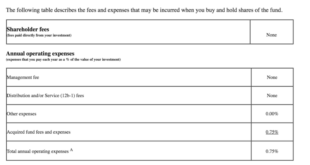Mortgage Broker Insights: Guide to Advice and Smart Decisions. Navigating the mortgage landscape can feel overwhelming, but understanding the role of a mortgage broker is the first step to simplifying the process. In this comprehensive guide, we will explore what mortgage brokers do, why their insights matter, and how they can help you secure the best deals tailored to your needs.
What is a Mortgage Broker?
A mortgage broker is a licensed professional who acts as an intermediary between borrowers and lenders. Instead of applying directly to banks or credit unions, borrowers work with brokers to access multiple loan options in one go. Mortgage brokers have deep knowledge of the lending market and help match clients with the best mortgage terms.
Why Mortgage Broker Insights Matter
Mortgage broker insights are valuable because they:
- Provide personalized advice tailored to your financial situation.
- Simplify complex lending terms and conditions.
- Help you save time by comparing offers from multiple lenders.
- Offer access to exclusive deals unavailable to the general public.
- Assist with the negotiation process to secure better rates.
How Mortgage Brokers Work
Mortgage brokers assess your financial situation by reviewing income, credit scores, and financial goals. Based on this data, they connect you with lenders that fit your needs. Here’s a breakdown of their process:
- Assessment: Analyze your financial health and loan eligibility.
- Market Research: Search for suitable lenders and loan products.
- Loan Application: Assist in completing and submitting applications.
- Follow-Up: Communicate with lenders on your behalf until loan approval.
Key Benefits of Using a Mortgage Broker
- Time Efficiency: Brokers streamline the process, so you don’t need to apply to multiple lenders individually.
- Cost Savings: They can secure lower interest rates or fees due to their industry relationships.
- Expert Guidance: Their insights can prevent costly mistakes during the borrowing process.
Mortgage Broker vs. Direct Lender
While mortgage brokers work with various lenders, direct lenders provide loans directly to borrowers. Brokers offer more options, while lenders might be more straightforward but limited in flexibility.
Choosing the Right Mortgage Broker
To benefit from mortgage broker insights, selecting the right professional is essential. Consider these factors:
- Experience: Ensure the broker has a proven track record.
- Licensing: Verify their licensing through official regulatory bodies.
- Reputation: Read reviews and ask for client testimonials.
- Transparency: A trustworthy broker should clearly explain fees and processes.
- Specialization: Some brokers specialize in certain types of mortgages, such as first-time homebuyer programs or refinancing.
Tips for Getting the Most Out of a Mortgage Broker
- Be Transparent About Your Finances: Honest communication helps the broker find the best deal.
- Ask Questions: Clarify terms, fees, and loan conditions.
- Stay Informed: Research market trends to understand broker suggestions.
- Review All Documents: Double-check contracts and disclosures.
- Set Clear Goals: Define what you’re looking for in a mortgage before consulting a broker.
10 Tips for Working With a Mortgage Broker
- Research Local Brokers: Familiarity with your area can lead to better loan options.
- Check for Fee Structures: Know if they charge upfront fees or earn through commissions.
- Understand Your Credit Score: Brokers rely on this to find suitable loans.
- Ask About Lender Relationships: Strong connections can mean better deals.
- Prepare Financial Documents: Have your income and expense records ready.
- Negotiate Terms: Brokers can sometimes adjust fees or rates.
- Seek Recommendations: Friends or family can refer trustworthy brokers.
- Evaluate Responsiveness: Prompt communication is crucial during time-sensitive applications.
- Avoid Pressured Decisions: A good broker will let you take the time you need.
- Review Reviews and Testimonials: Gain insights into their client satisfaction history.
10 Frequently Asked Questions About Mortgage Brokers
1. What does a mortgage broker do?
They connect borrowers with suitable lenders, simplifying the loan process and providing expert advice.
2. Do mortgage brokers charge fees?
Some brokers charge upfront fees, while others earn through lender commissions.
3. Can a mortgage broker improve my chances of approval?
Yes, their expertise and connections can improve your chances of finding a suitable lender.
4. Are mortgage brokers regulated?
Yes, brokers are licensed and regulated by government authorities in most countries.
5. Is using a mortgage broker better than going directly to a bank?
Brokers offer more options and personalized advice, while banks offer direct services.
6. Can I use a mortgage broker if I have a low credit score?
Yes, brokers can help find lenders who specialize in low-credit-score borrowers.
7. How do mortgage brokers make money?
They earn through lender commissions, borrower fees, or both.
8. What documents will a mortgage broker need?
Typically, they require proof of income, credit history, and financial statements.
9. Can mortgage brokers help with refinancing?
Yes, they assist with refinancing existing loans for better terms.
10. Do I have to accept the offers my broker presents?
No, you’re free to review and decline any offers.
Conclusion
Mortgage broker insights are invaluable for navigating the complex lending landscape. By understanding the role of a broker, you can unlock better financial opportunities and save both time and money. Whether you’re a first-time homebuyer or looking to refinance, working with an experienced broker ensures you make informed decisions.
Take control of your mortgage journey today by partnering with a broker who understands your unique needs. With their expert guidance, you can turn the daunting task of securing a loan into a smooth, rewarding experience.
 mortgage.kbk.news
mortgage.kbk.news
